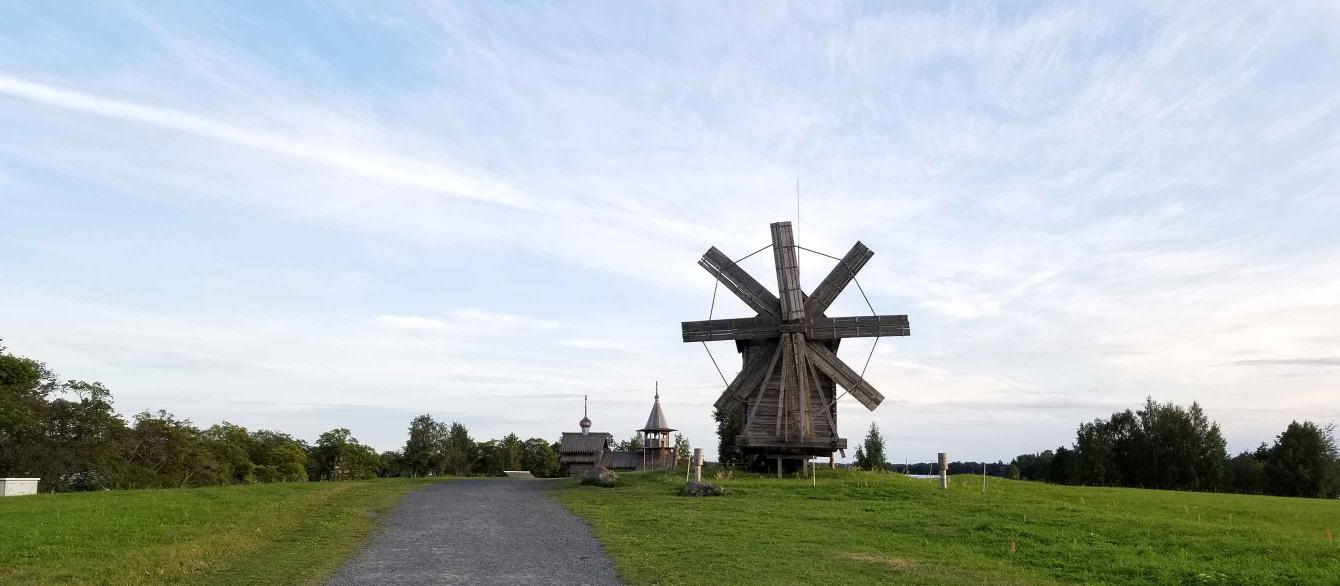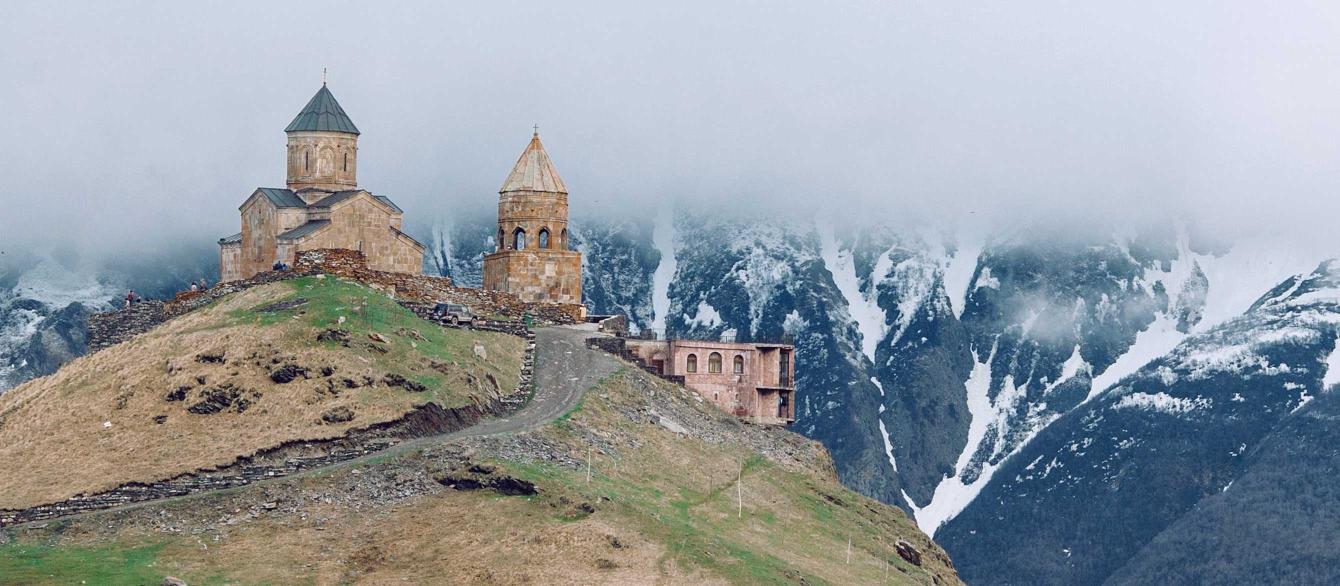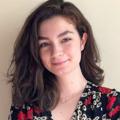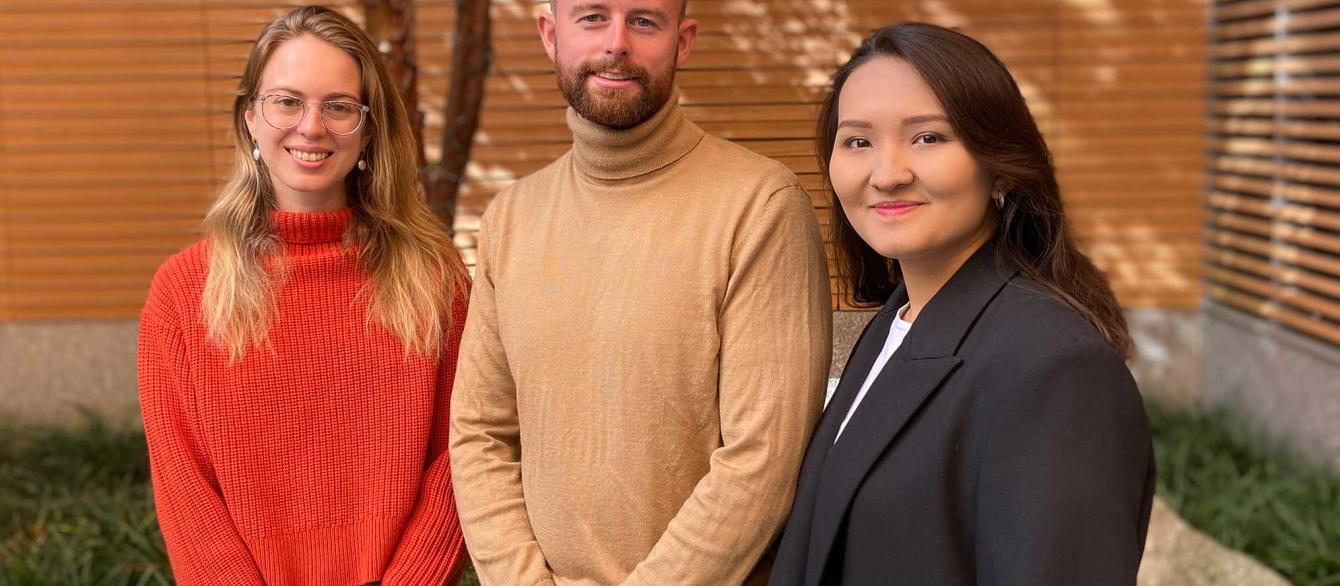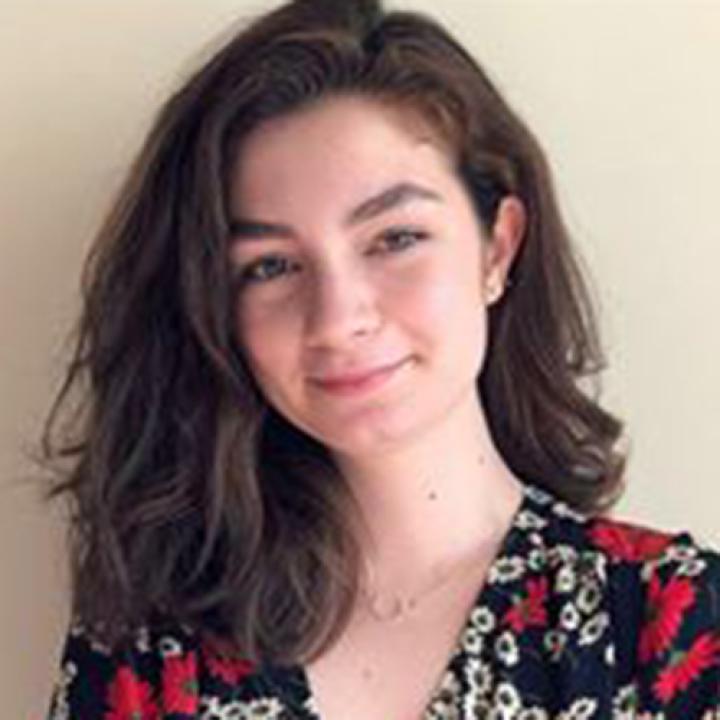Three students in the Master’s Degree Program in Regional Studies—Russia, Eastern Europe, and Central Asia (REECA) have been named Innovation Fellows for the 2022–23 academic year.
“It’s one thing to have a research assistant, with its traditional dynamic of hierarchy and delegating responsibilities,” explained Kelly O’Neill, Director of the Imperiia Project. Innovation Fellows are collaborators who “can stand on their own two feet,” said O’Neill, and make the most of this unique opportunity for intellectual growth and creative experimentation.
The Innovation Fellowship was created out of a desire to tap into the expertise of master’s students in regional studies and develop mutually engaging, beneficial projects. Each year, three master’s students are each paired with one of the Davis Center’s Scholar-Entrepreneur Initiatives: the Imperiia Project, the Negotiation Task Force, and the Program on Central Asia.
These programs engage in research across multiple disciplines and employ cutting-edge approaches in their work, striving to combine principles of scholarship and entrepreneurial activity in their methods and approaches. The fellowship equips students with research and professional development skills that pertain to their respective areas of interest, as well as multidisciplinary experience in both academic and nonacademic fields.
Engaging in scholarly partnership with REECA master’s students was an “obvious avenue to explore,” according to Nargis Kassenova, Director of the Program on Central Asia. Each of the Innovation Fellows plans to pursue related research or professional work beyond the academic year. As their chosen fields—conflict negotiation, digital humanities, and transnational climate study—develop further, keep an eye out for their names.
Conor Cunningham
“Even when I was applying for master’s programs, the Negotiation Task Force was already on my radar,” says Conor, a first-year student in the REECA program. In the summer of 2021, he had enrolled in the Middlebury-Monterey Summer Symposium on Russia and participated in an NTF bootcamp, taking part in simulated negotiations on the 2014 war in the Donbas and the nuclear disarmament treaty Deep START.
His interest in conflict and negotiation strategy stems from experiences studying Russian in Daugavpils, Latvia, as well as the research he conducted while on a Fulbright Scholarship in Moldova. Conor conducted surveys with university students studying international relations on topics related to language use and language politics, media consumption, and disinformation—issues that play a notable role in fomenting geopolitical conflict in the post-Soviet sphere.
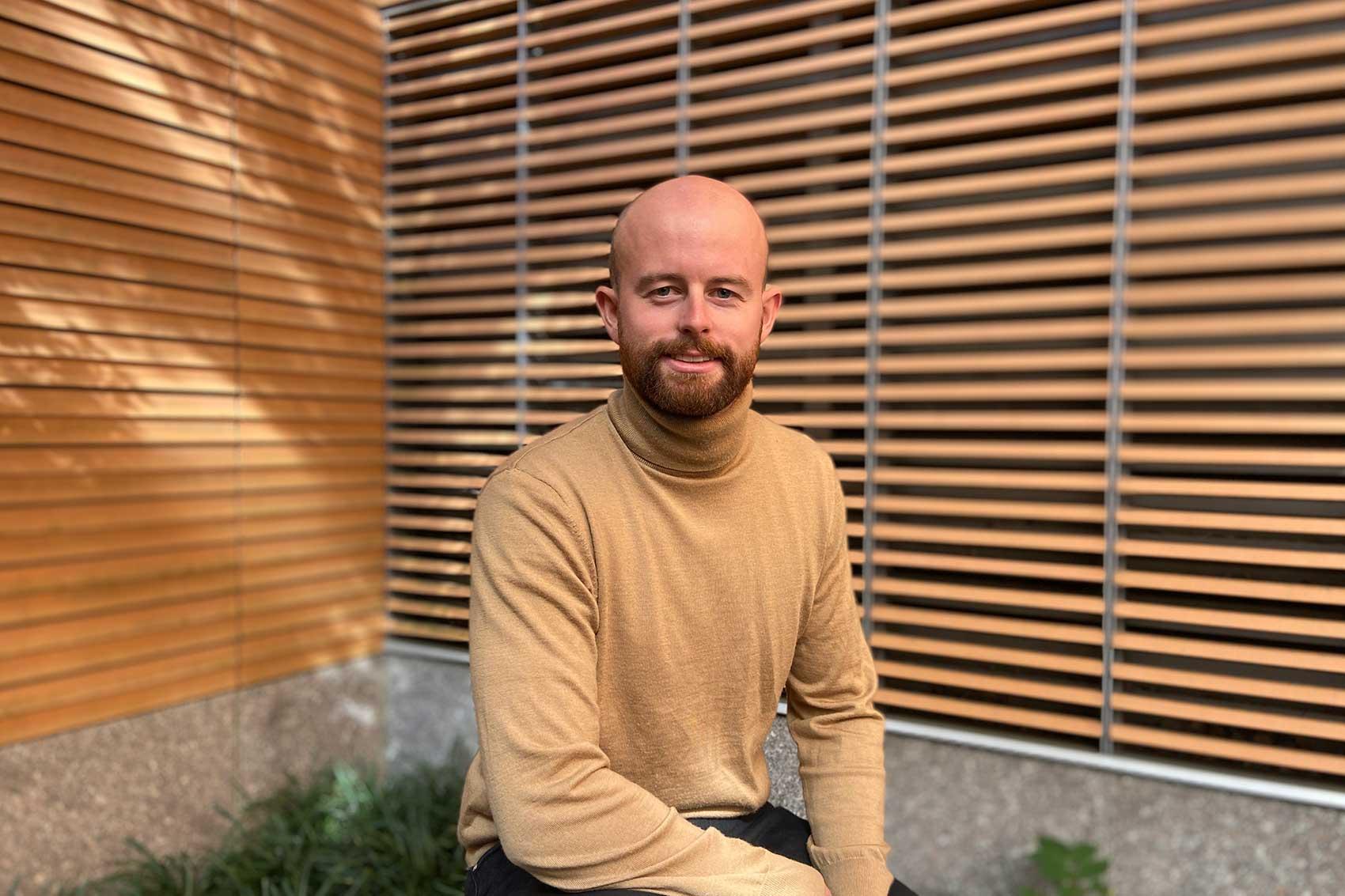
Conor Cunningham is the 2022–23 Innovation Fellow for the Negotiation Task Force.
His new role as the NTF Innovation Fellow builds on his prior work as a Cybersecurity Fellow at University of Washington’s International Policy Institute. As the Innovation Fellow, Conor is contributing to the intensive planning, marketing, and execution of the Red Horizon international crisis exercise. This experience has brought him into collaboration with a variety of stakeholders from government, the private sector, and academia.
In the spring, Conor will support the Negotiation Exercise Incubator in developing new scenarios for conflict negotiation simulations—a project which demands an “entrepreneurial and creative mindset” in addition to scholarly regional expertise, said Arvid Bell, Director of the NTF.
Though still early in his REECA career, Conor expressed certainty that the skills he acquires during his fellowship will have “practical benefits in a number of professional fields.” Given that NTF was on his mind before beginning his master’s degree, it will surely stay there after graduation too.
Abigail Gipson
For researchers and educators, often the most exciting reaction that a student can have in response to new material is, “Wow, this completely changes how I see things!” And what if that quintessential classroom experience could be accessed anywhere?
Second-year REECA student Abigail Gipson is interested in exactly that. As the Innovation Fellow for the Imperiia Project, she’s investigating novel ways to make the study of history more engaging. During her fellowship, Abigail will be working with maps and other primary source materials that date back to the 16th century and adapting them for the project’s website.
This approach involves thinking about “how to turn old material into digital educational content that will be engaging for students,” says Abigail, and introduce students to primary sources and to the discipline of spatial history. She explains that part of the challenge involves making the work accessible beyond the narrow field of scholars (mostly historians of the Russian empire or environmental historians) who are typically interested in this material.
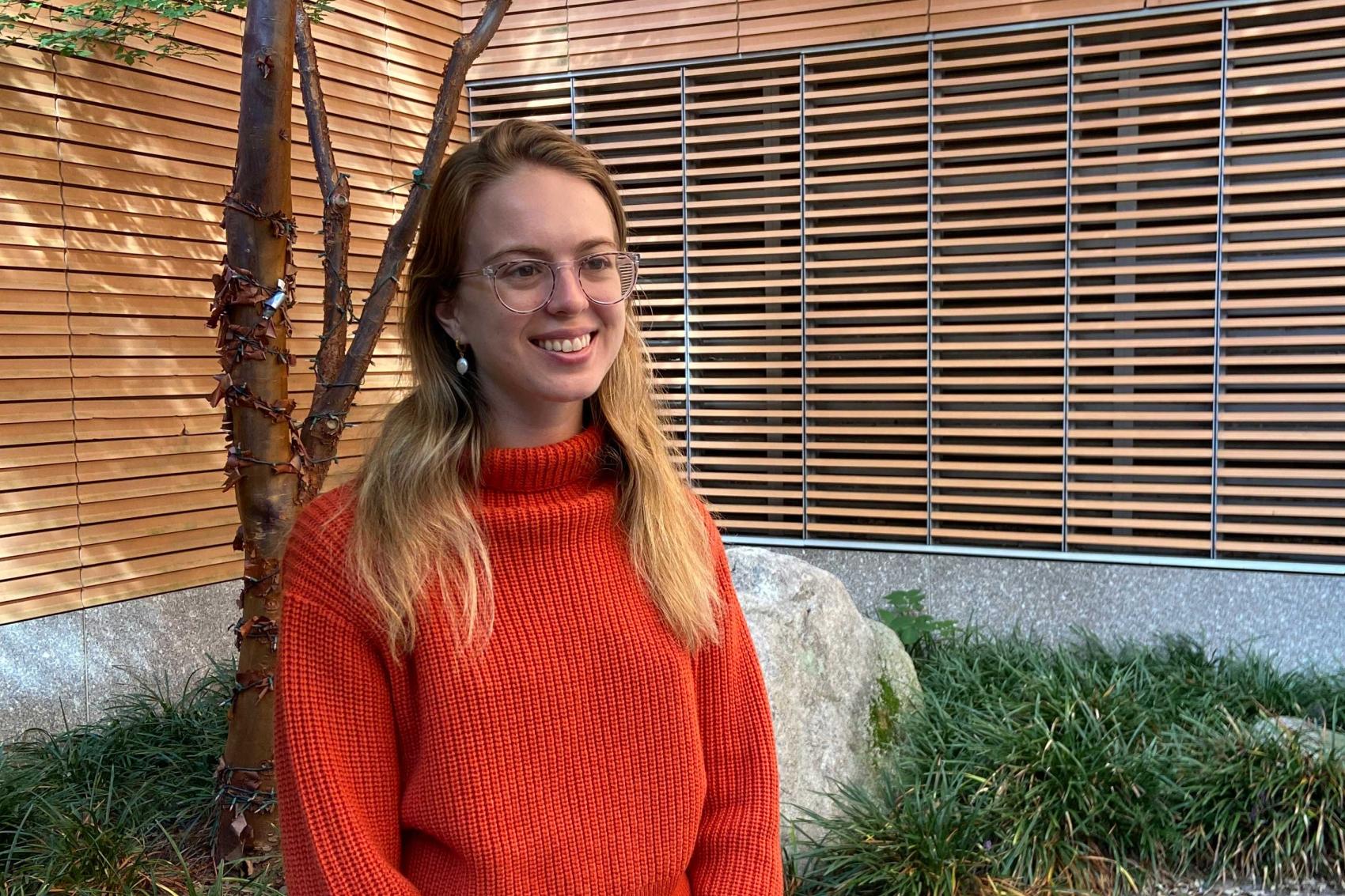
Abigail Gipson is the 2022–23 Innovation Fellow for the Imperiia Project.
Her work with the Imperiia Project dovetails with her REECA master’s thesis on the literary cultures of non-Russian inhabitants of the Russian Empire and later, the Soviet Union. Both projects focus on “expanding how we think of Russian history” beyond the well-trodden cultural histories of Moscow and Saint Petersburg.
And as for the most interesting map that Abigail has come across so far? A 17th-century cartographical sketchbook of Siberia caught her attention for its numerous unconventional elements, which include an auxiliary fold-out section and miniature drawings of local flora and fauna. Explained Abigail, “The map can be regarded as both a tool that conveys important information about the wildlife in these regions and an art object in its own right.”
Though not often in the headlines of the scholarly process, details such as these make all the difference in transforming the experience of historical discovery—in the classroom and beyond.
Aruzhan Meirkhanova
Though Central Asia may not be the region that first jumps to mind when considering the politics of climate change, it might be soon. For Program on Central Asia Innovation Fellow Aruzhan Meirkhanova, it’s all about working towards a greener future and making a name for herself in the vital and rapidly growing field of global climate politics.
Aruzhan, a second-year REECA student, previously worked with Dr. Kassenova as a research assistant, studying the governance of renewable energy transition in Central Asia. “It’s a very topical field of research amidst the global decarbonization agenda,” Aruzhan explains, “but one that hasn’t received much attention in Central Asia–related academic research.”
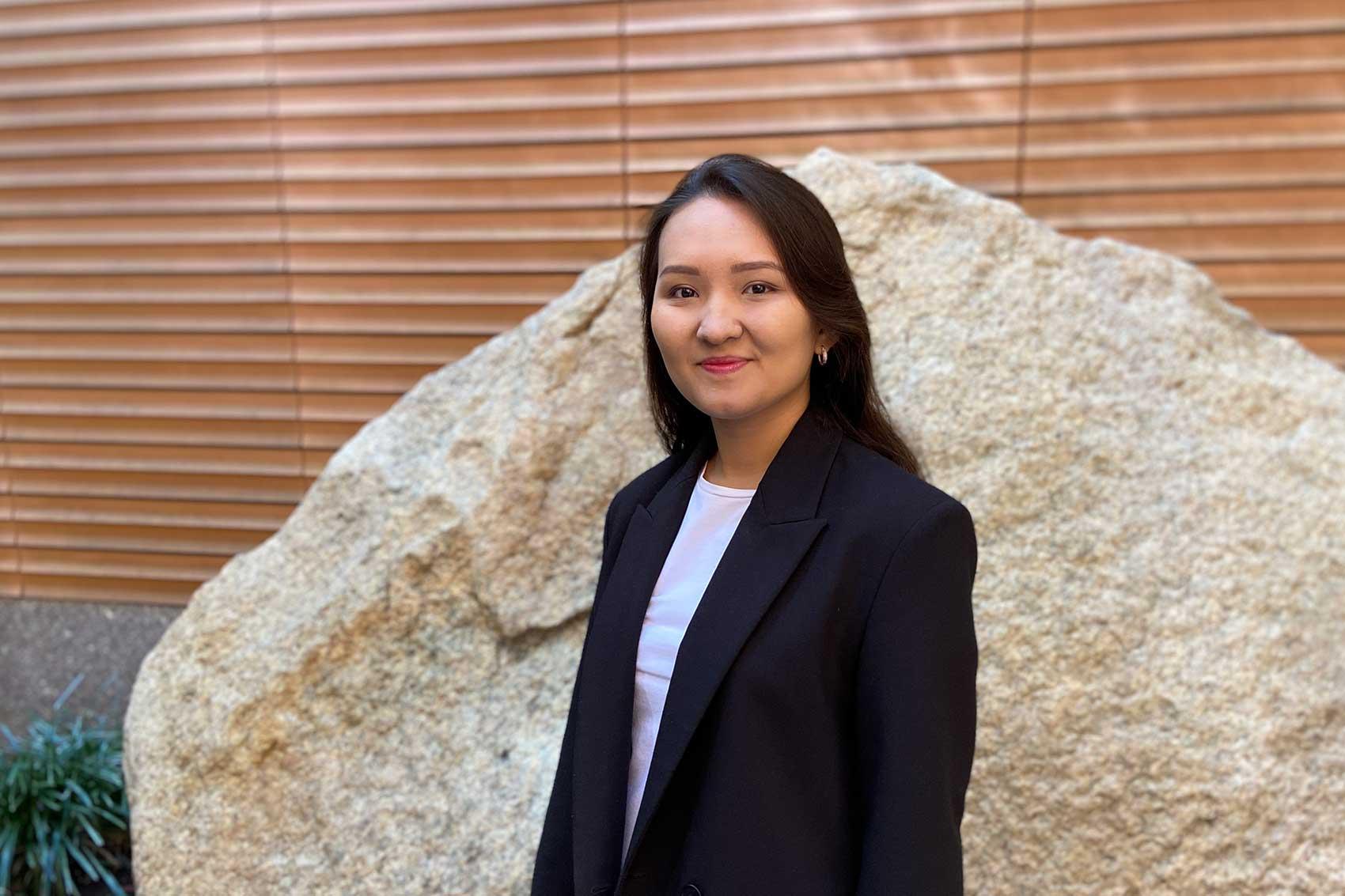
Aruzhan Meirkhanova is the 2022–23 Innovation Fellow for the Program on Central Asia.
Last summer, the team traveled to Kazakhstan to conduct interviews with members of international organizations, government officials, and other stakeholders in Almaty and Astana. Dr. Kassenova noted just how passionate Aruzhan is about this field of study: “She is very enthusiastic about the issue of energy transition in Central Asia,” bringing her own fresh energy and dynamism to the topic.
Most of Aruzhan’s research will focus on Kazakhstan, but she will also study the region’s other countries in comparative perspective. To this end, she is taking classes in the Department of Environmental Studies, including one this fall on addressing the global climate crisis.
In her thesis research, Aruzhan focuses primarily on the dynamics of elite politics in authoritarian settings, but she expresses enthusiasm about the practical possibilities of building expertise in the field of renewable energy and embarking on a career in policymaking: “I hope to implement this body of knowledge after graduation,” which includes acquiring skills in interpreting complex legal documents.
If nations are going to succeed in tackling the issues associated with global warming head on, they’ll need the innovative thinking of experts like Aruzhan.


